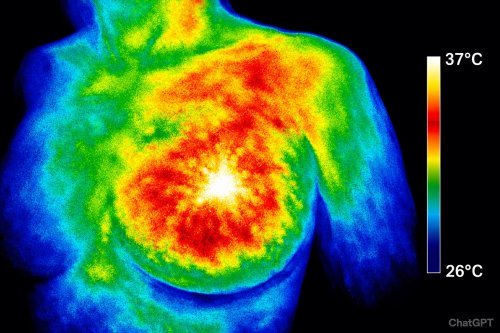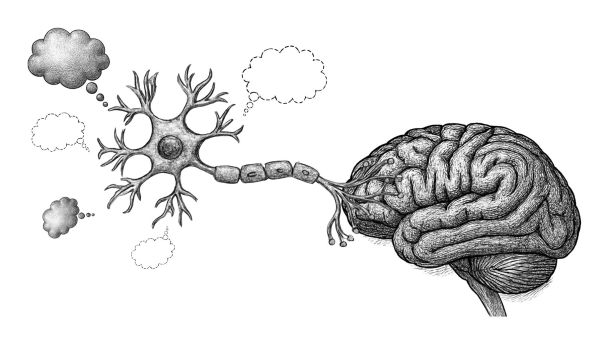The gut-hormone connection
Gut health is at the very heart of our overall health – yet it is one of the most overlooked and misunderstood areas of modern medicine. Your digestive tract is not just a tube for food; it is an intelligent, living ecosystem, home to trillions of microbes that influence everything from hormone balance to mood, energy, immunity, and even the clarity of your skin. When our gut is thriving, our whole body feels more resilient. When it is struggling, symptoms can show up in unexpected ways – anxiety, fatigue, hormone imbalance, thyroid issues, joint pain, food intolerances, and stubborn weight gain are just a few examples.
The mainstream view of digestion is far too simplistic: calories in, calories out. But the reality is much richer. Food is information, and our gut is the interface where this information gets translated into signals for our body. What we eat, how we digest it, and how well we eliminate waste directly shapes our hormonal, metabolic, and neurological balance.
Gut Health and Hormone Balance
Your gut and your hormones are deeply linked. In fact, your gut microbes help regulate estrogen, progesterone, testosterone, and cortisol. This is one reason women struggling with PMS, peri-menopause, or menopause often find relief when they begin to restore their gut health.
The gut microbiome contains a group of bacteria known as the estrobolome. These microbes are responsible for metabolizing estrogens, breaking down excess amounts, and sending them safely out of the body. If this system is compromised – by antibiotics, processed foods, toxins, or stress – estrogens can be reabsorbed into circulation, leading to symptoms of estrogen dominance such as bloating, breast tenderness, heavy periods, irritability, and even thyroid imbalances. When estrogen is allowed to dominate unchecked, progesterone cannot perform its balancing, calming role.
By contrast, a healthy gut supports liver detox pathways, reduces systemic inflammation, and helps progesterone do its job properly: soothing anxiety, stabilizing mood, and protecting bone and heart health.
Signs Your Gut May Be Out of Balance
Because your gut influences nearly every system in your body, the signs of imbalance can be surprisingly diverse. Some of the most common include:
- Bloating, gas, constipation, diarrhea, or alternating between them
- Food sensitivities or worsening allergies
- Brain fog, poor concentration, or memory issues
- Anxiety, depression, or irritability
- Fatigue and unrefreshing sleep
- Hormonal symptoms such as PMS, irregular cycles, hot flashes
- Autoimmune flare-ups or chronic inflammation
- Skin issues – acne, rosacea, eczema, or unexplained rashes
Many people chase after each of these symptoms individually, never realizing the common thread is gut health.
What Damages Gut Health?
Our modern lifestyle is hard on the gut. Even those who think they “eat healthy” often fall into hidden traps. Some of the most damaging influences include:
- Processed foods and refined sugars – They feed pathogenic bacteria and yeast, encouraging overgrowth.
- Antibiotics and certain medications – They wipe out good bacteria as well as the bad.
- Glyphosate and pesticides – Present in non-organic grains and produce, these disrupt the microbiome and gut lining.
- Chronic stress – High cortisol slows digestion, increases gut permeability (“leaky gut”), and alters microbial balance.
- Low stomach acid – Contrary to popular belief, many digestive issues stem from too little stomach acid, not too much. This leads to poor protein digestion and overgrowth of harmful microbes.
- Dairy and gluten – Highly inflammatory in sensitive individuals; they can inflame the gut lining and worsen autoimmune or hormonal issues.
The Importance of Progesterone in Gut Health
1. Protecting the Gut Barrier
One of progesterone’s most vital roles is strengthening the gut lining. It upregulates tight junction proteins, the “seals” between intestinal cells, preventing unwanted particles from leaking into the bloodstream. This is essential for calming inflammation, reducing food sensitivities, and protecting against autoimmune flare-ups. Research shows progesterone can directly reduce gut permeability, making it a natural ally in healing “leaky gut.”
2. Calming Inflammation
Progesterone has powerful anti-inflammatory effects. It reduces the production of inflammatory cytokines, tempers an overactive immune response, and supports regulatory pathways that bring balance rather than destruction. In gut terms, this means less pain, swelling, and irritation in the intestinal lining — and more room for repair and regeneration.
3. Shaping the Microbiome
Your microbes are responsive to hormones. High progesterone states, like pregnancy, often see an increase in beneficial bacteria such as Bifidobacterium. This supports digestion, strengthens immunity, and aids in nutrient absorption. When progesterone is low — as in peri-menopause or menopause — microbial diversity often declines, contributing to digestive upset and metabolic changes.
4. Balancing Estrogen and Supporting Detox
The gut eliminates estrogens via the stool, but only if the microbiome and gut barrier are working properly. Progesterone plays a balancing role here: it prevents estrogen dominance (too much estrogen relative to progesterone), which is linked to bloating, breast tenderness, and gut irritability. By working with the liver and gut detox pathways, progesterone helps excess hormones leave the body safely.
5. Supporting Digestive Rhythm
Progesterone relaxes smooth muscle tissue, which influences how food moves through the intestines. This action, in the right balance, helps reduce spasms and improve motility. Too little progesterone, and you may experience cramps, irritation, or irregular bowel movements. The right amount brings smoother, more predictable digestion.
Healing the Gut Naturally
True healing comes when you remove what harms and add what nourishes. Mainstream medicine often stops at suppressing symptoms with antacids, laxatives, or antibiotics, but this never addresses the root cause. A more natural, nourishing path can help the gut restore itself.
Here are some foundational steps:
1. Eat Real Food
Choose whole, unprocessed foods. Favor organic vegetables, fruits, pasture-raised meats, wild fish, and healthy fats like olive oil, coconut oil, and avocado. Eliminate processed sugar and industrial seed oils (corn, soy, canola), which inflame the gut.
2. Support Digestive Fire
Good digestion begins in the stomach. Apple cider vinegar in water before meals, digestive bitters, or even supplemental betaine HCl can help those with low stomach acid. This ensures proteins are broken down properly and pathogens are destroyed before reaching the intestines.
3. Rebuild the Microbiome
Fermented foods such as sauerkraut, kimchi, kefir, and unsweetened yogurt introduce beneficial microbes. High-quality probiotics can also help, especially strains like Lactobacillus reuteri and Bifidobacterium infantis, which are well documented for restoring balance.
4. Heal the Gut Lining
A leaky gut allows toxins and food particles into the bloodstream, triggering inflammation. Nutrients such as L-glutamine, zinc carnosine, collagen, and bone broth are particularly helpful for repairing and soothing the gut lining.
5. Detoxify Gently
Your liver and gut work hand in hand to process hormones and toxins. Cruciferous vegetables (broccoli, kale, cauliflower), dandelion root tea, and milk thistle support this detoxification. Adequate fiber from vegetables and seeds helps bind and remove waste.
6. Manage Stress
Stress management is not optional; it is essential. Deep breathing, prayer, meditation, time in nature, or simply slowing down your meals can calm the nervous system and improve gut motility.
It is important to remember there is no “one size fits all” approach. Some people thrive on fermented foods; others need to avoid them initially due to histamine intolerance. Some heal quickly with bone broth, while others react to glutamates and need alternatives. Listening to your body and adjusting step by step is key.
Steps to Supporting Your Gut with Progesterone
If you suspect that low progesterone is contributing to your gut issues, here are some practical steps to follow to support your gut health with progesterone supplementation:
1. Get a hormone test done
Making sure that they include progesterone. See our page on hormone testing for more details.
2. Consider supplementing with bio-identical progesterone
If using a cream such as Natpro, which is a 3.33% progesterone concentration cream, start with a minimum dose of 50mg in the morning and 50mg in the evening. Progesterone should be used from when ovulation starts until menstruation begins. If you are peri-menopausal, menopausal or post-menopausal you can use the cream every day. Experiment with the dose to see how your body responds, if you need to increase the dose, do so by 50mg per month. For more details see our page on How to use Progesterone Cream.
3. Pair progesterone supplementation with gut-healing nutrition
Choose whole foods, fibre, fermented foods (if tolerated), and nutrients like glutamine, zinc, and magnesium.
4. Vitamin D
Vitamin D is essential when supplementing with progesterone as a deficiency can reduce the benefits. The minimum daily dose should be 5000iu's per day, although the latest research indicates it should be 10,000iu's per day, see here. Remeber to take the co-factors of Vitamin K2 and magnesium.
5. Reduce estrogen dominance
Avoid endocrine disruptors (plastics, pesticides, synthetic fragrances, synthetic hormones), and support liver detox with cruciferous vegetables and clean hydration. Please see our page on environmental toxins.
6. Manage stress
High cortisol reduces progesterone’s calming effects and damages the gut lining. Breathwork, meditation, and rest are non-negotiable parts of gut-hormone healing.
***
Many women notice that when they begin natural progesterone therapy alongside gut-nourishing habits, their digestion settles, bloating decreases, food sensitivities lessen, and energy steadies. Mood lifts, sleep deepens, and hormones feel more balanced.
Science is now catching up with what countless women have experienced firsthand: progesterone is not only a reproductive hormone, it is a gut ally, an anti-inflammatory, and a protector of whole-body health.
References
Estrobolome / Estrogen–Gut Microbiome Axis
Baker, J. M., et al. (2017). Estrogen–gut microbiome axis: Physiological and clinical implications. Maturitas. This review discusses how the gut microbiota regulates estrogens via β-glucuronidase activity, and how disruption (dysbiosis) affects estrogen-driven conditions. PubMed
Kumari, N., et al. (2024). Unraveling the Role of Gut Microbiota in (Phyto)Estrogen Metabolism. Discusses estrobolome genes, phytoestrogen metabolism, and associations with PCOS, endometrial issues, etc. PubMed
Hu, S., et al. (2023). Gut microbial beta-glucuronidase: a vital regulator in estrogen metabolism and related disease. This more recent work explores how microbial β-glucuronidase influences estrogen reactivation and balance. Taylor & Francis Online
The “Estrobolome” review by Larnder, A.H. et al. The estrobolome: Estrogen-metabolizing pathways of the gut microbiome. (IJ Cancer etc.) This identifies microbes and enzymes involved in estrogen processing. Wiley Online Library
Kaliannan, K., et al. (2018). Estrogen-mediated gut microbiome alterations influence metabolic endotoxemia and inflammation in mice. Offers animal model evidence that estrogen influences gut composition and inflammation. BioMed Central
Glutamine, Gut Lining, Intestinal Barrier / Permeability
Achamrah, N., et al. (2017). Glutamine and the regulation of intestinal permeability. This is a review showing glutamine’s role in tight junction protein expression and reducing “leaky gut.” PubMed
Perna, S., et al. (2019). The Role of Glutamine in the Complex Interaction between Gut Microbiota and Immunity. Discusses immune function, barrier integrity, microbiota interactions. PMC
Huang, M., et al. (2025). Oral low dose of glutamine improved the spontaneous intestinal permeability and morphology in GI disease. This newer study provides clinical evidence in GI disease states. Frontiers
Rastgoo, S., et al. (2021). Glutamine Supplementation Enhances the Effects of a Low FODMAP Diet in Amelioration of IBS Symptoms. Randomized trial showing benefit in IBS when adding glutamine to diet. Frontiers
Diet, Microbiota, Inflammation, Hormones
Hussain, T., et al. (2021). Relationship between gut microbiota and host-metabolism. This explores correlations in human populations of gut microbiota, estrogen metabolites, metabolic health. ScienceDirect
Kwa, M., et al. (2016). The Intestinal Microbiome and Estrogen Receptor-Positive Breast and Endometrial Cancer. Observational study linking diversity, estrogen metabolism, and cancer risk. Oxford Academic
Zhou Z., et al. (2019). Progesterone decreases gut permeability through upregulating occludin expression in primary human gut tissues and Caco-2 cells. Scientific Reports.
Progesterone increased tight-junction protein (occludin) expression and reduced intestinal permeability in primary human gut tissue and Caco-2 epithelial cell models. Mechanistic in-vitro + ex-vivo human tissue data supporting a direct effect on barrier function. PMC
Nuriel-Ohayon M., et al. (2019). Progesterone increases Bifidobacterium relative abundance during pregnancy.
Progesterone modulates the pregnancy-associated gut microbial composition — notably increasing beneficial genera such as Bifidobacterium. Supports a hormone → microbiome modulatory axis (pregnancy model / human observational). ScienceDirect
van der Giessen J., et al. (2019). A direct effect of sex hormones on epithelial barrier function and wound healing in gut tissue. Clinical & Translational Gastroenterology / related work.
Estrogen and progesterone alleviate ER stress, reduce pro-inflammatory cytokine production, and stimulate wound healing in epithelial models — evidence for sex hormones supporting gut epithelial integrity (mechanistic/animal/ex-vivo). PMC
Fedotcheva T.A., et al. (2022). Progesterone as an anti-inflammatory drug and immunomodulator. Biomolecules.
Thorough review of progesterone’s anti-inflammatory and immunomodulatory actions (mechanisms via nuclear and membrane PRs, cytokine modulation). Useful as a mechanistic background linking P4 to reduced gut inflammation. MDPI
Karatepe O., et al. (2012). The effect of progesterone in the prevention and treatment of experimental colitis in rats. (Annals of Coloproctology / Acta Cir Bras)
What it shows: Animal colitis model where progesterone treatment reduced inflammation and improved colonic healing — supports potential therapeutic benefit in inflammatory gut disease models.
 Environmental toxins have increased dramatically since the Second World War, and with them, the rise in hormone-related and degenerative diseases. Although all vertebrates are affected, these conditio…
Environmental toxins have increased dramatically since the Second World War, and with them, the rise in hormone-related and degenerative diseases. Although all vertebrates are affected, these conditio…
 Memory is the brain’s ability to store and recall information. When this system fails, we experience memory loss, which ranges from mild forgetfulness to severe cognitive impairment such as dementia o…
Memory is the brain’s ability to store and recall information. When this system fails, we experience memory loss, which ranges from mild forgetfulness to severe cognitive impairment such as dementia o… Migraines aren’t just intense headaches — they’re a systemic neurological crisis that disrupts your senses, drains your energy, and derails your life. What most people don’t realize is that women are…
Migraines aren’t just intense headaches — they’re a systemic neurological crisis that disrupts your senses, drains your energy, and derails your life. What most people don’t realize is that women are…